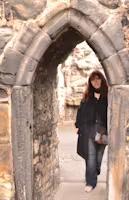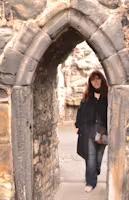Explore women's roles in medieval spirituality, from mysticism to dissent. Discover influential figures and their impact on religious landscapes.
Explore women's roles in medieval spirituality, from mysticism to dissent. Discover influential figures and their impact on religious landscapes.
Delve into the rich world of women's spirituality in the Middle Ages with this comprehensive course from the Universitat de Barcelona. Uncover the diverse roles women played in shaping medieval religious landscapes, from founding monastic movements to writing mystical texts. You'll explore the lives and works of influential figures like Hildegard of Bingen, Clare of Assisi, and Marguerite Porete. The course covers topics such as female monasticism, mysticism, heretical movements, and the impact of women's spirituality on medieval society and architecture. Through a combination of video lectures, quizzes, and peer-reviewed assignments, you'll gain a deep understanding of how medieval women found their spiritual voices and left lasting legacies that continue to resonate today.
4.4
(103 ratings)
15,565 already enrolled
Instructors:
English
What you'll learn
Understand the development of female monasticism from early to late Middle Ages
Analyze the works and visions of influential female mystics like Hildegard of Bingen
Explore the role of women in medieval heretical movements and their impact
Examine the spiritual landscapes and spaces created by and for women
Investigate the daily life and practices in medieval nunneries
Discuss the influence of women on religious reforms and observant movements
Skills you'll gain
This course includes:
7.43 Hours PreRecorded video
5 quizzes, 2 peer reviews
Access on Mobile, Tablet, Desktop
FullTime access
Shareable certificate
Get a Completion Certificate
Share your certificate with prospective employers and your professional network on LinkedIn.
Created by
Provided by

Top companies offer this course to their employees
Top companies provide this course to enhance their employees' skills, ensuring they excel in handling complex projects and drive organizational success.





There are 5 modules in this course
This course offers a comprehensive exploration of women's spirituality in the Middle Ages, covering a wide range of topics from early female monasticism to late medieval mysticism and dissent. Students will learn about the development of nunneries, the lives and works of influential mystics, and the role of women in heretical movements. The curriculum is divided into five modules, each focusing on a different aspect of women's spiritual experiences and their impact on medieval society. Through video lectures, quizzes, and peer-reviewed assignments, participants will gain insights into the spiritual landscapes created by women, their writings, and their influence on religious practices and spaces. The course emphasizes the diversity of women's spiritual expressions and their lasting legacy in religious history.
A Voice of their Own: Introduction
Module 1 · 1 Hours to complete
THE HOUSE OF THE HEART: NUNS IN THE MIDDLE AGES
Module 2 · 1 Hours to complete
The Space Within: Female Mysticism in the Middle Ages
Module 3 · 3 Hours to complete
VOICES OF DISSENT
Module 4 · 2 Hours to complete
SPIRITUAL LANDSCAPES
Module 5 · 2 Hours to complete
Fee Structure
Payment options
Financial Aid
Instructors
Expert in Medieval History and Female Mysticism
Blanca Garí, Professor of Medieval History at the University of Barcelona's Department of History and Archaeology, specializes in female mysticism in the late Middle Ages. A member of the Institute for Research on Medieval Cultures (IRCVM), she has authored several volumes exploring the spiritual writings and contributions of women mystics from this period.
PhD Student Investigating Heretical Groups and Inquisitors in the Late Middle Ages
Delfi I. Nieto-Isabel, a PhD student at the Department of Medieval History, Palaeography & Diplomatics at the University of Barcelona, focuses her research on spirituality networks in the Late Middle Ages, particularly among heretical groups in southern Europe. Her work explores both the dynamics within these groups and their interactions with the inquisitors who persecuted them. Delfi incorporates Digital Humanities methods into her research to deepen understanding of these historical networks.
Testimonials
Testimonials and success stories are a testament to the quality of this program and its impact on your career and learning journey. Be the first to help others make an informed decision by sharing your review of the course.
Frequently asked questions
Below are some of the most commonly asked questions about this course. We aim to provide clear and concise answers to help you better understand the course content, structure, and any other relevant information. If you have any additional questions or if your question is not listed here, please don't hesitate to reach out to our support team for further assistance.





